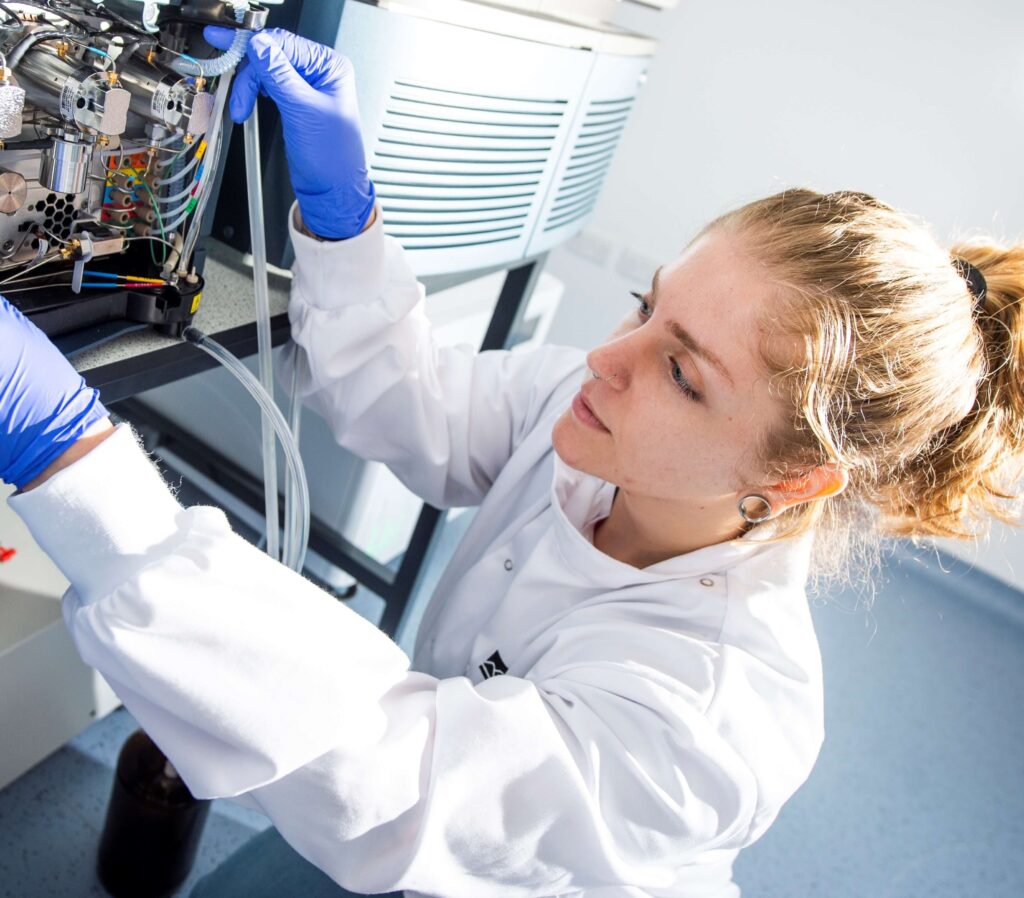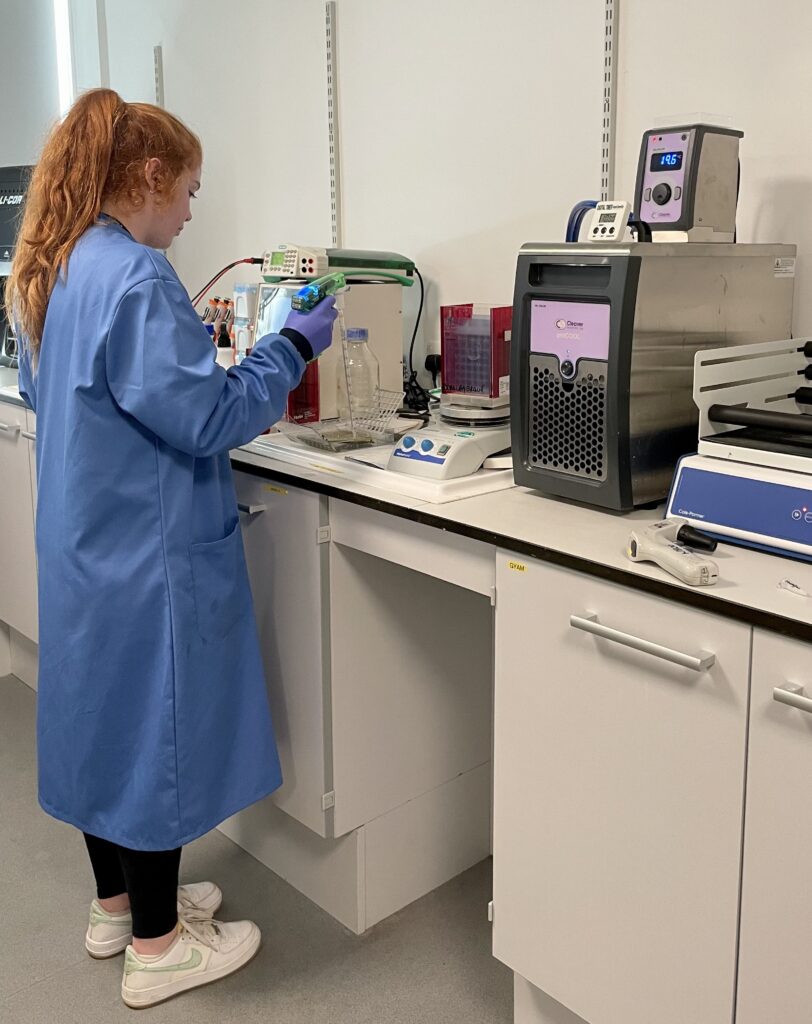We have supported Professor Myra Conway’s research work on dementia since 2018. Now at the University of Derby, Myra and her team continue to make progress. We asked Dr Marcela Usmari Moraes, Senior Research Technician and key member of Myra’s team to up date us. Marcela had this to say.

“Dementia and diabetes are two of the most common and devastating diseases and key global health challenges. Based on epidemiological studies, people with diabetes have an increased risk of developing Alzheimer’s disease (AD), the most prevalent form of dementia. The incidence of Type 2 diabetes is clearly linked with poor diet and lifestyle choices. As a result, research into the link between dietary contributors, which are characteristically associated with type 2 diabetes, and AD pathology is gaining impetuous.
Over the last 18 years, the Conway Research group has been working to understand the underlying mechanisms that contribute to the progression of AD, with a focus on a brain-specific protein (BCAT) known to be increased in the brains of people with AD. More recently, our interest has expanded to incorporate contributions from other conditions such as type 2 diabetes.

The normal role for BCAT in the body is to break down components of dietary proteins, known as amino acids, that are used for energy and signalling processes in the cell. Under disease conditions, such as type 2 diabetes, the levels of these amino acids and sugars (glucose) are in excess, which upsets the normal functioning of the cell. We found that high levels of BCAT, as observed in AD brain, reprogramme how sugars are processed result in an end product that can be toxic to the brain. A build-up of this end product was related to an increase in the markers of AD disease, called amyloid and tau, which are known indicators of AD disease. Concurrently, we are also investigating the role BCAT plays in clearing these toxic compounds aiming to understand how these mechanisms can be controlled through diet.

Ultimately our goal is to understand and potentially manipulate the processes that have gone wrong in disease, expanding our knowledge of type 2 diabetes, and Alzheimer’s disease. We expect our work to help inform further studies into the identification of targeted therapies and potential drug targets, offering a fresh perspective into healthy living and healthy ageing.“
University of Derby are a Partner Charity and we are committed to supporting their research over the longer term. We will keep you posted on this important work.
